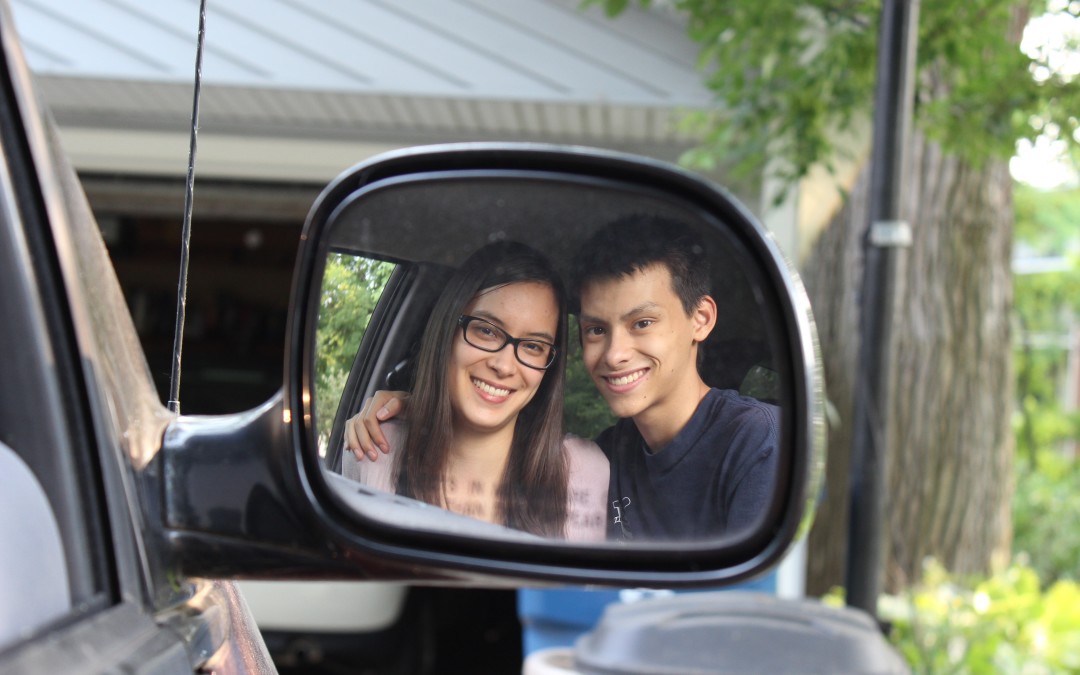At the beginning of this summer, my brother, Sam, was only a few of the required practice hours away from getting his driver’s license, and because I’m old enough to chaperone him, once I came home after graduation, he began chauffeuring me around. He’s a very good driver, checking his mirrors, signaling, stopping completely at stop signs, so I sometimes forgot to pay attention. One afternoon, with me partly to blame, he almost changed lanes with a red sports car in his blind spot. It had come out of nowhere, and had not my sister barked from a backseat, “Sam, Sam, Sam,” with rising levels of panic, I would probably be writing a different reflection now. After swerving back into his lane, my brother tried to calm the shaken passengers and himself: everyone was okay; no one hit anyone; it could have been so much worse. We decided that the red sports car was a little crazy.
She was certainly aggressive, and crazily enough, reminded me of The Great Gatsby’s Jordan Baker, whom Nick admonishes, “You’re a rotten driver. Either you ought to be more careful, or you oughtn’t to drive at all.”
“I am careful.”
“No, you’re not.”
“Well, other people are,” she said lightly.
I must confess that I frequently think of Jordan Baker when I drive, not because the roads are full of hooligans, although they probably are, but because I worry that I may be one of those rotten drivers who shouldn’t drive at all. Don’t get me wrong: I’m not intentionally careless. I drive the speed limit with both hands soberly on the wheel and the music not too loud. However, I have taken my turn when it’s not my turn, which is to say that I’ve accidentally run through a red light, and sometimes I miss stop signs, but thankfully, the other drivers have been more careful than I.
Sharing the road can be tricky, but it is more than just physically complicated, something David Foster Wallace brings up in his 2005 commencement address to Kenyon College. In this address, Wallace fleshes out the skeleton of the cliché that a liberal arts education is about “teaching you how to think.” He argues that the liberal arts goal of learning to think is not actually about learning how to use our brains; rather it is about learning to control what we think about and, thus, how we view ourselves, our worlds, and our fellow drivers.
For example, Wallace points out that I can choose to view the huge, oil-guzzling SUV crowding me as just that: a selfishly wasteful, climate-damaging machine (and, by metonymy, driver), or I can choose to consider the possibility that this driver has survived a ghastly car accident and, when driving, only feels safe enough in a large SUV. Thinking this way would considerably alter normal rush-hour irritation. What Wallace demonstrates is that imagination has the power to turn me from frustration to empathy. When I imagine other, more hospitable narratives for rotten drivers, I divert my attention from my own victimization and, instead, empty myself of myself, becoming concerned for the people with whom I share a world that actually does not revolve around me.
Imagination can lead further than empathy, though. If I act upon empathy, if I stop grumbling about that huge SUV or the car that just cut me off and instead consider my fellow drivers as people with legitimate fears or beginners somewhat shaky on the road, then I accord them some grace. (Or, maybe it’s just common decency to hold my judgment when I have only five seconds worth of evidence to go on.) Conversely, if I imagine myself as Jordan Baker, winged by people more careful than I, I find grace even on strip-mall lined streets, for when I make mistakes on the road, I don’t deserve to get off scot-free—and yet I do. What goes around does not always come around, and sometimes that’s grace. When other people forgive my mistakes on the road, my heart skips a couple beats from the near misses, but the goose bumps come when I realize that my fellow drivers are angels whose watchful care has kept me from a fiery wreck.
Recently, my brother paid a visit to the DMV. After the driving test, his evaluator told him everything he could have done better. Sam was sure he had failed, but then his evaluator passed him. Now, he runs out of the house, grabbing the keys with an eagerness and confidence my sister and I have never had. I’m happy to say that when I told him Jordan Baker’s excuse for bad driving (the only thing I really contributed to his driver’s education), he was disgusted. Yet, I wonder if it might be worth taking the tiniest leaf out of Jordan’s book: an awareness of the careful drivers. Then, angel-sightings might be more frequent.
Sabrina Lee (’13) returned to the Calvin English Department in August 2023 as an assistant professor. She is currently finishing her dissertation and teaching “Ways of Reading,” the department’s introductory theory course.



I haven’t thought of Jordan Baker in years!! I’ll probably see her on the road all the time, now. 🙂